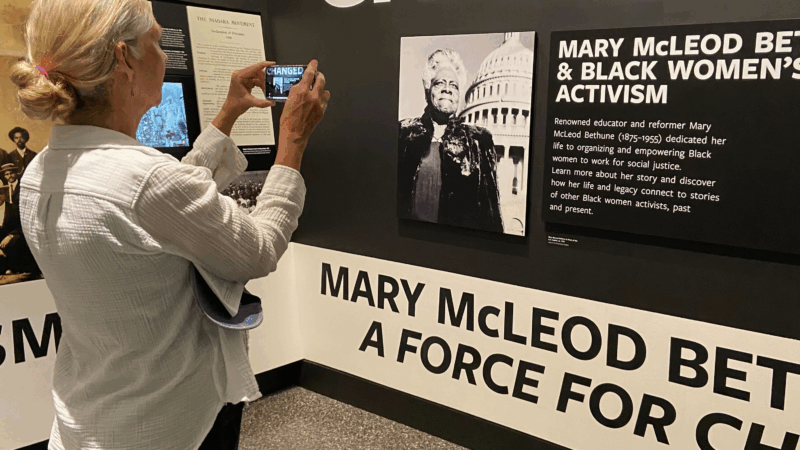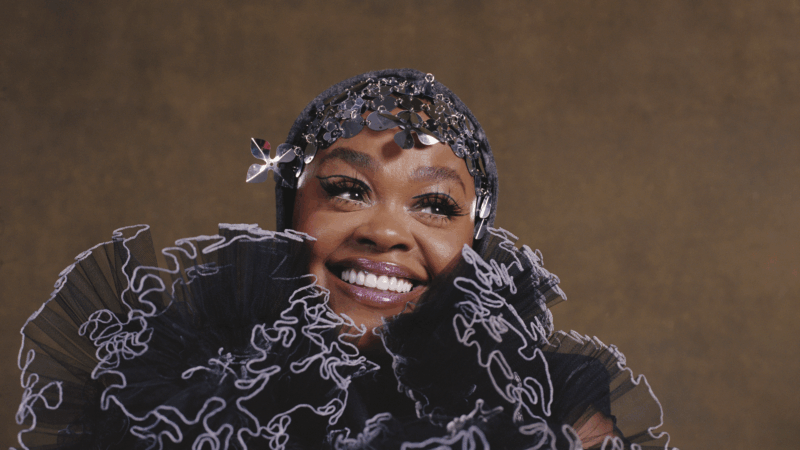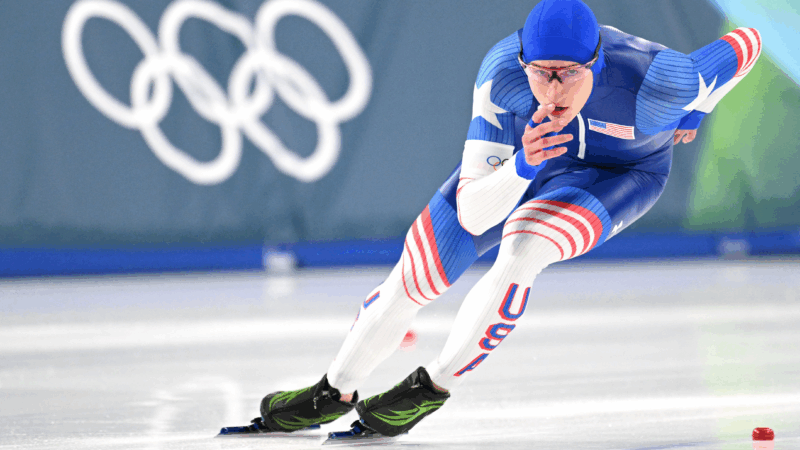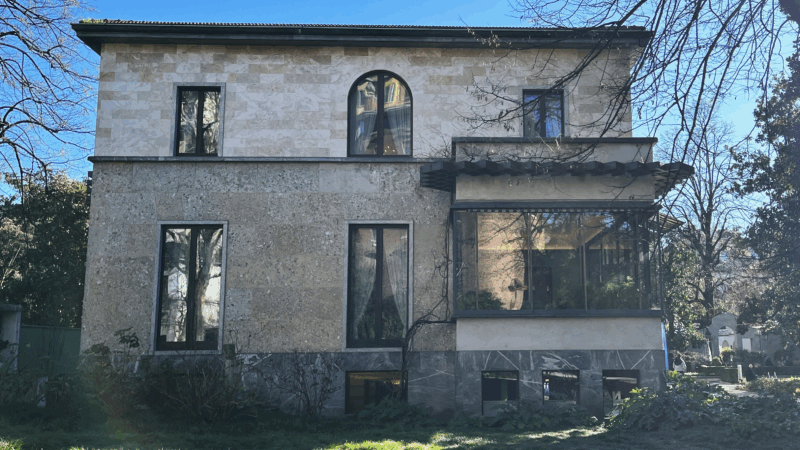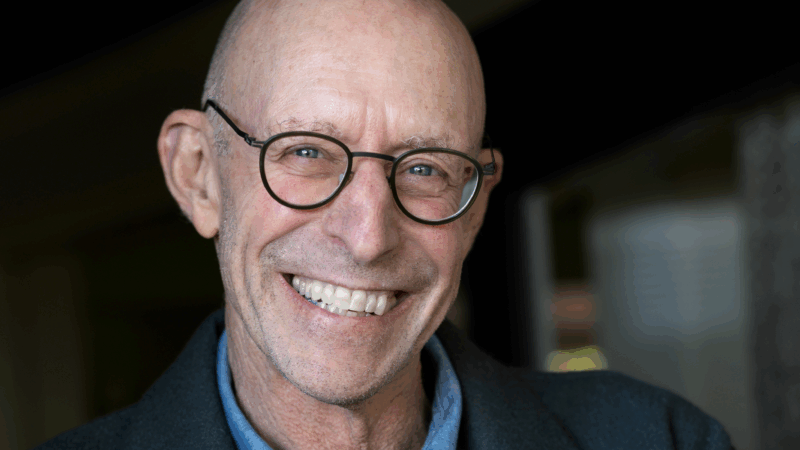Wary of changes under Trump, ‘citizen historians’ are documenting the Smithsonian
Early in his second term, President Trump issued an executive order that claimed the Smithsonian Institution promotes “narratives that portray American and Western values as inherently harmful and oppressive.” And in mid-August, Trump administration officials sent Smithsonian Secretary Lonnie G. Bunch III a letter requiring a “comprehensive internal review” of eight Smithsonian museums including American History, American Art Museum, Natural History and Air & Space.
Now, historians and citizens concerned about the Trump administration’s approach to, and involvement in, the Smithsonian have come together to document how the museums look today. Their goal is to produce a record before any changes that might be made.
I’m a historian of China, and so I’m really used to when governments are stepping in trying to whitewash history and censor history. … It really upset me to see this being threatened in the United States as well.
Georgetown University professor Jim Millward
Two historians in particular put out the call for help. One, Georgetown University professor Jim Millward, said the Trump administration’s pressure on the Smithsonian has him alarmed. “I’m a historian of China, and so I’m really used to when governments are stepping in trying to whitewash history and censor history like that,” he said. “And it really upset me to see this being threatened in the United States as well.”
Millward’s colleague, historian Chandra Manning, was equally concerned, so the two of them got together to hatch a plan. “As citizens, we wanted to find a way to step forward and steward this national treasure for now and for the future,” said Manning.
Manning said they took inspiration from “Save Our Signs,” which was created in response to the Trump administration’s call for visitors to report signs in National Parks that are “negative about either past or living Americans.” Hundreds of visitors photographed signs to help create an archive of what the signs said before any changes were made.
“Citizen Historians” aims to do the same for the Smithsonian, said Millward.
“So we came up with this idea to call for volunteers to go out and, in a systematic way, go exhibit by exhibit, room by room, hall by hall, museum by museum, and take pictures simply of what’s up there now and what’s being said now,” he said.
A vast “repository of human wisdom”
This is a massive undertaking. There are millions of artifacts, objects, specimens and artworks on view at the Smithsonian’s 21 museums.
“The range is really quite breathtaking,” said Manning, “from Jackie Robinson’s jersey to prehistoric skeletons to Ming vases. It really is a repository of human wisdom right here in Washington, D.C.”
The historians sent their request for volunteers to friends, neighbors and colleagues. The only requirement was a smartphone and a desire “to join us to help save our history,” according to the letter, which was shared with NPR.
Millward said hundreds of people responded.
“The volunteers run the gamut. Young and old people from all over D.C., Maryland and Virginia,” he said. “Some had worked at the Smithsonian before, maybe as docents or even as employees, but many had not. They’d simply visited the Smithsonian themselves over the years and had a real feeling of how important it was.”
“Citizen historians” with smartphones
Volunteer Shelley Smith, a retired public health professional, was assigned the gallery “Forces for Change: Mary McLeod Bethune and Black Women’s Activism” at National Museum of African American History and Culture
In 1904, Bethune started a school for Black girls in Daytona Beach, Fla. She went on to become a prominent civil rights activist and the first African American to have a state-commissioned statue in the U.S. Capitol, of which a replica is in the gallery. Among the other influential Black women honored are Mamie Till-Mobley, Shirley Chisholm, Lena Horne, Oprah Winfrey and poet Amanda Gorman.
Smith photographed everything: a small diary Bethune kept when she visited Europe in 1927, the historic images, the wall text.
“You see history in a different light,” she said, “They tell the story from a lot of different angles. And so it was just so important to document what the people that initiated this museum and project wanted to be out there and wanted to be said.”
Millward said he believes museums should change with the times based on scholarly research and historic oversights, not with political pressure.
“We don’t want a museum that doesn’t deal with sensitive issues. We want one that’s honest and can talk about the whole range of our history and culture,” he said.
According to Millward, volunteers have so far uploaded more than 25,000 photographs and videos from Smithsonian museums to a temporary storage site. He and his colleagues are looking for a permanent home for the images. You can follow their progress here.
R&B stars consider two ways to serve an audience
Two albums released the same day — Jill Scott's return from a long absence, and Brent Faiyaz's play for a mid-career pivot — offer opposing visions of artistic advancement in the genre.
Baby chicks link certain sounds with shapes, just like humans do
A surprising new study shows that baby chickens react the same way that humans do when tested for something called the "bouba-kiki effect," which has been linked to the emergence of language.
American Jordan Stolz speedskates to a third Olympic medal — silver this time
U.S. speedskater Jordan Stolz had a lot of hype accompanying him in these Winter Olympic Games. He's now got two gold medals, one silver, with one event to go.
Bad Bunny and J. Cole rule the pop charts
These days, the Super Bowl halftime show is a massive driver of the streaming, airplay and sales that fuel the Billboard charts. This week, Bad Bunny benefits from that influence.
Reporter’s notebook: My Olympic Lunar New Year
An NPR reporter covering the Olympics in Milan takes us on cultural side quests, to a hospitality house and a candy store.
Michael Pollan says AI may ‘think’ — but it will never be conscious
"Consciousness is under siege," says author Michael Pollan. His new book, A World Appears, explores consciousness on both a personal and technological level.

